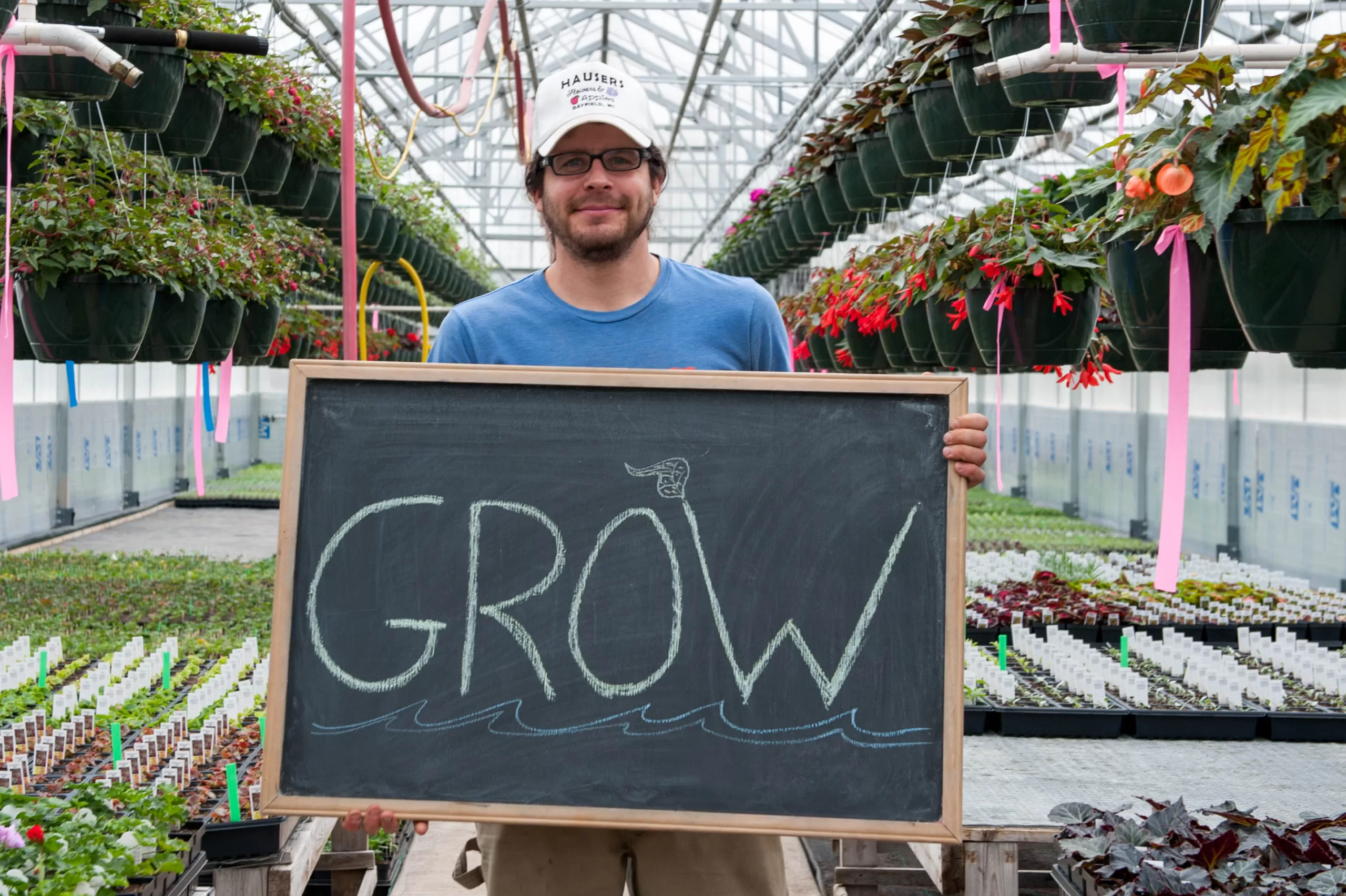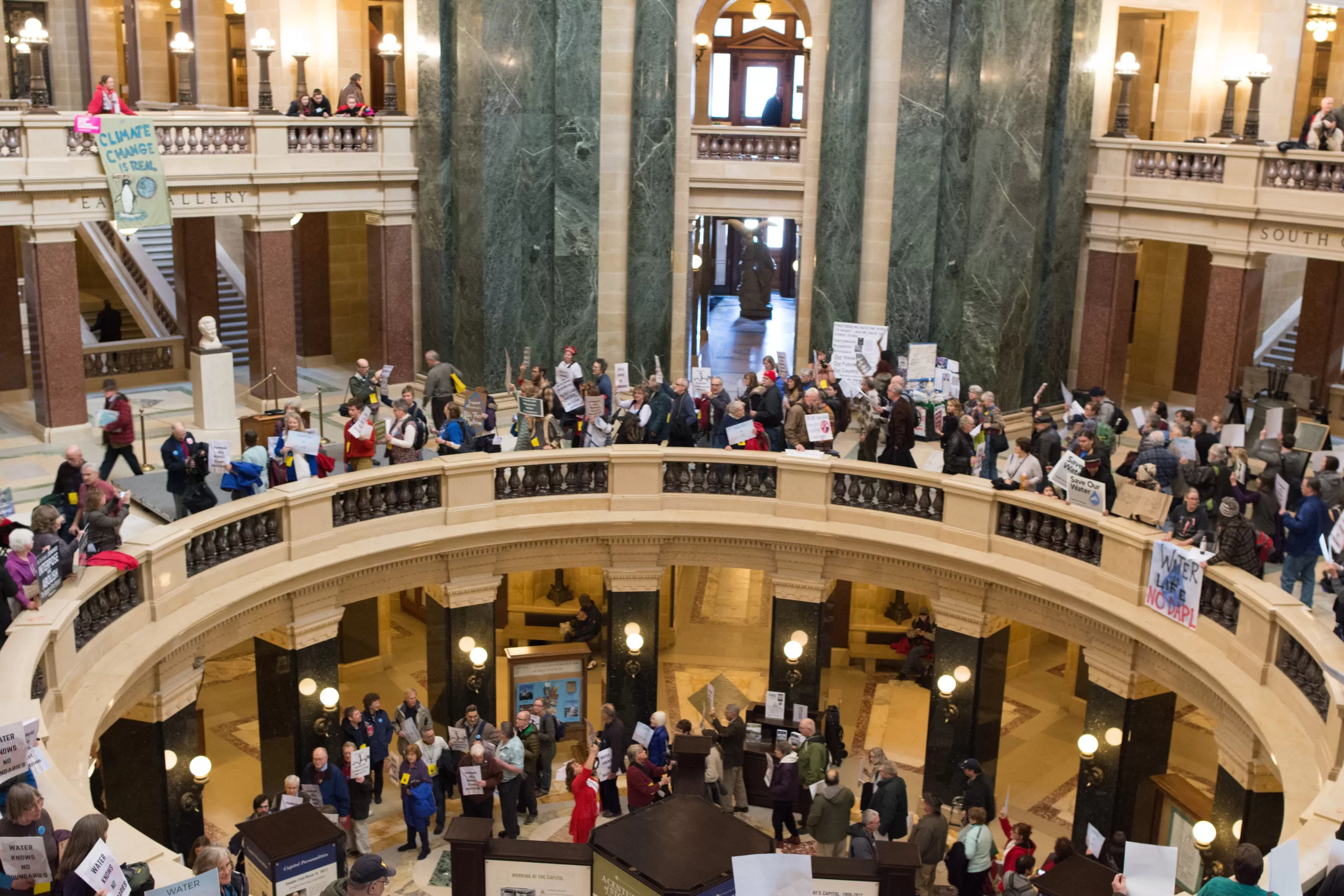Share
Mary Dougherty is a writer, chef, executive director, and mother who lives on the shore of Lake Superior in the northernmost area of Wisconsin.
In 2014, Mary became an activist when a 26,000-head hog CAFO threatened Bayfield, her town of 400 residents.
A friend tipped off Mary to the proposed CAFO. Not knowing what a CAFO was, she asked another friend who was an attorney and had fought CAFOs before.
Alarmed, Mary knew the threat to her community and Lake Superior was severe and she jumped into action.
Mary co-founded the group, Farms Not Factories, with her neighbors. The small Bayfield community started to raise their shared voices to protect their way of life.

Image by Jack Dougherty
Their goal was to move towards a just and more sustainable food system for their area.
Farms Not Factories started two petitions. One garnered 3,000 signatures calling for a CAFO moratorium in Ashland County. The other called for an Environmental Impact Statement of the CAFO site, with 6,200 signatures.
Farms Not Factories started the coalition Chequamegon Bay Downstream Business Coalition with over 70 member groups.
They partnered with documentary filmmaker Doug Pray to develop a series of short videos featuring local perspectives on factory farming and its impact on small farming communities.
They also launched a photography project, Words for Water, to establish a narrative about the necessity of clean water to the Lake Superior Basin community.

Image by Mary Dougherty
Farms Not Factories also reached out to the nearby communities, hosting a number of community events.
They worked with local Native American tribes including the Red Cliff tribe and Bad River tribe to oppose the CAFO proposal and amplified the indigenous voices raised in protest.
They wrote numerous letters to the dditors and eventually created enough noise that the EPA was forced to notify Environment Canada of the impending CAFO and the threat to Lake Superior using Article 6 of the Great Lakes Water Quality Agreement (GLWQA).
Via these projects, Farms Not Factories engaged various groups, stakeholders, and communities outside their small town. Their opposition gained widespread traction, leading Ashland County to pass a moratorium on CAFOs.

Image by Jack Dougherty
The application remains incomplete and the CAFO owner is still attempting to sell the property five years later.
Mary credits the resiliency of her communities for achieving their goals.
“Remarkable things are possible when you find ways to organize, encourage people to surrender enough self-interest to work towards a common good, and focus more on winning and less on being right,” she reflected.
However, she knows this work is far from done.
“All food comes from somewhere, and that somewhere is someone’s home,” said Mary.
Armed with the knowledge and experience of what it takes to push back against the ever increasing tide of industrial agriculture, Mary envisions a resilient local food system that supports small farmers and respects the land, air, and water.
For more info visit: Right to Harm to see more of Mary’s story as one of the five communities featured in the documentary film.
About SRAP
For more than 20 years, SRAP has served as a mobilizing force to help communities protect themselves from the damages caused by industrial livestock operations and to advocate for a food system built on regenerative practices, justice, democracy, and resilience. Learn more at sraproject.org.

